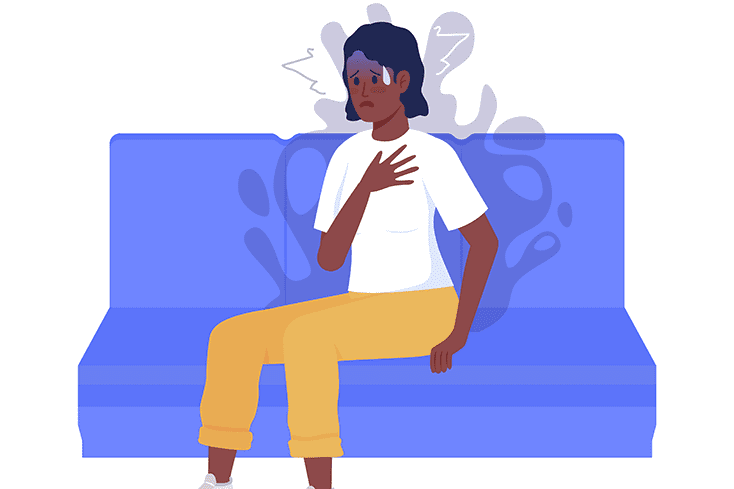August 05, 2022
By Meghan Nelligan

I was scrolling through TikTok the other night, as many Gen Z-ers do, and I came across a woman my age talking about trigger warnings. For those unfamiliar, Merriam-Webster defines a “trigger warning” as “a statement of caution that content may be disturbing or upsetting.” This woman was mocking those providing trigger warnings before their videos, arguing that trigger warnings are useless, that the world cannot and will not “shelter you,” and that the only one who cares about what you are going through is yourself.
I found this message to be incredibly toxic and harmful. As someone with mental illness, I was upset to see someone with an online platform telling her audience that “no one cares.” As many of us living with mental health conditions will tell you, mental illness often tells us just that; that we are worthless, alone and a burden.
Although I struggle with my mental health, I am fortunate to have resources and a support system to turn to. Not everyone does. And not everyone viewing this woman’s video will question her thinking. Instead, they will internalize her words and believe they cannot turn to anyone. Often, those living with mental illness will suffer alone to avoid burdening others. While a friend cannot provide the same level of support as a mental health professional, they can remind you that you are loved, you are worthy and you matter.
When people with influence demean trigger warnings, they perpetuate a harmful line of thinking that ignores the lived experiences of so many people.
Trigger warnings have been a topic of debate for years. They are a controversial subject, especially in the academic sphere. Professors and teachers have largely adopted disclaimer language, providing warnings of the content discussed in semesters on their syllabuses or before classes. In my senior year of college, my creative writing professor required my classmates and I to put trigger warnings before our short stories if the work discussed traumatic events. Similarly, mental health events I have attended included resources and a disclaimer at the beginning that difficult subjects may arise.
Those against trigger warnings argue that they are coddling people and simply don’t help. Or, like this woman on TikTok, they might say that that trigger warnings are making the younger generation too sensitive. However, there isn’t enough data to conclude whether these disclaimers do or don’t work yet. But, regardless of efficacy, is that the point? Perhaps we could see trigger warnings as giving students or individuals the choice to decide for themselves what they can handle.
Certainly, this TikTokker isn’t completely wrong. Society does not always care. The world can be a hard place, and mental illness is still very much stigmatized. I do not expect the world to “baby” me, but is that what trigger warnings are about? I don’t believe so.
When a social media influencer or professor or a television show alerts me: “trigger warning,” I feel respected. I feel seen; as if someone is telling me, “I know what you have been through, and it is ok if right now you do not want to go back there.”
Trigger warnings give people autonomy. They allow people to compose themselves, to enter a healthier mindset or simply to decide, “I cannot handle this today.” After all, trauma is very real — and people’s reactions to their life experiences are valid and do not require the approval of other people. Trigger warnings, as I understand them, are an act of compassion, not a sign of a weak generation. Because one of the strongest things you can do is ask for help or admit, “I am not ok.” Trigger warnings say, “Not everyone will care, but I do. I care.”
Meghan Nelligan is a creative writer and mental health advocate based in New Jersey. As a young woman who lives with depression, anxiety, body-image issues and grief, she knows that storytelling can be healing. You can see all her writing on her website, including her freelance blogs and poetry pieces. Opinions expressed here do not reflect the views of her affiliations.
We’re always accepting submissions to the NAMI Blog! We feature the latest research, stories of recovery, ways to end stigma and strategies for living well with mental illness. Most importantly: We feature your voices.
LEARN MORENAMI HelpLine is available M-F, 10 a.m. – 10 p.m. ET. Call 800-950-6264,
text “NAMI” to 62640, or email. In a crisis, call or text 988 (24/7).